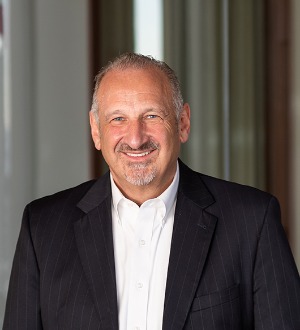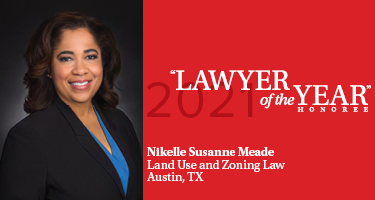On April 23, 2020, Law360 published “Mass. Ruling Clarifies Land Use Regs For Cannabis” by Paul Feldman and Courtney Simmons. In the article, Paul and Courtney examine the interplay between exercise of zoning power and other police powers, and how a recent decision arising from the regulation of the cannabis industry is helping to further delineate the circumstances when a municipality can validly implement or change a bylaw or ordinance as exercise of its general police powers rather than its zoning powers, with require a two-thirds vote. Read the article in Law360.
Mass. Ruling Clarifies Land Use Regs For Cannabis
Mass. Ruling Clarifies Land Use Regs For Cannabis

Paul L. Feldman
June 7, 2021 12:43 PM
Related Articles
Colorado Attorney General Calls For Cannabis Reclassification
by Gregory Sirico
In this article, Best Lawyers highlights a recent call to action by the Colorado state attorney general, requesting a full drug reclassification of cannabis.

Evolving Marijuana Laws and the Workplace
by Tess P. Anglin
How can employers enforce statutes that differ from state to state?

The Green Rush: Cannabis Is a Growing Industry
by Justin Smulison
Connecticut announced it will legalize high-THC cannabis for adult use on July 1, making it the 19th state to do so in the U.S. As of June 2021, 38 states and Puerto Rico have legalized cannabis for medical use.

Is New Always Better?
by Janice Zhou
The rapid rise of gentrification in major cities leaves residents wondering.

Trending Articles
Introducing the 2026 Best Lawyers Awards in Australia, Japan, New Zealand and Singapore
by Jennifer Verta
This year’s awards reflect the strength of the Best Lawyers network and its role in elevating legal talent worldwide.

Discover The Best Lawyers in Spain 2025 Edition
by Jennifer Verta
Highlighting Spain’s leading legal professionals and rising talents.

How to Increase Your Online Visibility With a Legal Directory Profile
by Jennifer Verta
Maximize your firm’s reach with a legal directory profile.

Effective Communication: A Conversation with Jefferson Fisher
by Jamilla Tabbara
The power of effective communication beyond the law.

Paramount Hit With NY Class Action Lawsuit Over Mass Layoffs
by Gregory Sirico
Paramount Global faces a class action lawsuit for allegedly violating New York's WARN Act after laying off 300+ employees without proper notice in September.

The Future of Family Law: 3 Top Trends Driving the Field
by Gregory Sirico
How technology, mental health awareness and alternative dispute resolution are transforming family law to better support evolving family dynamics.

The 2025 Legal Outlook Survey Results Are In
by Jennifer Verta
Discover what Best Lawyers honorees see ahead for the legal industry.

Safe Drinking Water Is the Law, First Nations Tell Canada in $1.1B Class Action
by Gregory Sirico
Canada's argument that it has "no legal obligation" to provide First Nations with clean drinking water has sparked a major human rights debate.

New Mass. Child Custody Bills Could Transform US Family Law
by Gregory Sirico
How new shared-parenting child custody bills may reshape family law in the state and set a national precedent.

The Best Lawyers Network: Global Recognition with Long-term Value
by Jamilla Tabbara
Learn how Best Lawyers' peer-review process helps recognized lawyers attract more clients and referral opportunities.

Jefferson Fisher: The Secrets to Influential Legal Marketing
by Jennifer Verta
How lawyers can apply Jefferson Fisher’s communication and marketing strategies to build trust, attract clients and grow their practice.

Finding the Right Divorce Attorney
by Best Lawyers
Divorce proceedings are inherently a complex legal undertaking. Hiring the right divorce attorney can make all the difference in the outcome of any case.

The Future of Canadian Law. Insights from Best Lawyers: Ones to Watch Honorees
by Jennifer Verta
Emerging leaders in Canada share their perspectives on the challenges and opportunities shaping the future of Canadian law

New Texas Law Opens Door for Non-Lawyers to Practice
by Gregory Sirico
Texas is at a critical turning point in addressing longstanding legal challenges. Could licensing paralegals to provide legal services to low-income and rural communities close the justice gap?






